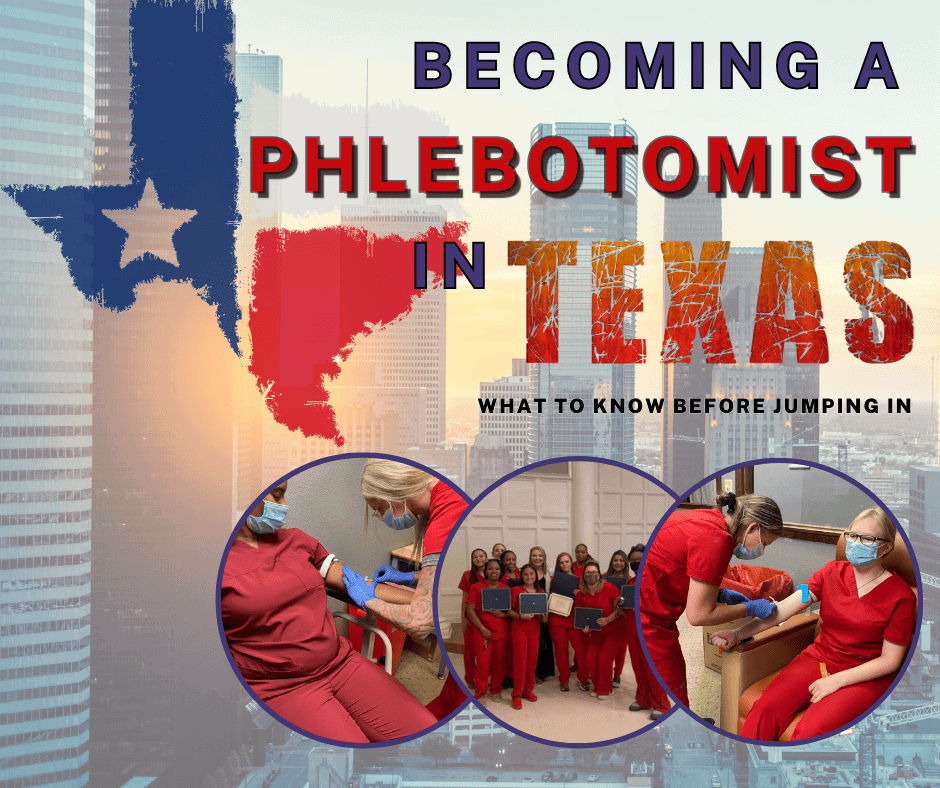How to Become a Phlebotomist in Texas

Becoming a phlebotomist in Texas is one of the fastest ways to enter the healthcare field without earning a long degree. Most students complete training in 4–8 months, earn national certification, and qualify for entry-level roles across hospitals, clinics, laboratories, and blood donation centers.
According to the U.S. Bureau of Labor Statistics, phlebotomists in Texas earn $42,290 per year ($20.33 per hour) as of May 2024. This guide explains the exact steps, training requirements, certification options, and job outlook so you can move forward with confidence.
Step 5: Maintain Certification and Advance Your Career
Most certifications require renewal every 1–2 years through:
- Continuing education credits
- Renewal fees
With experience, phlebotomists may advance into roles such as lead phlebotomist, mobile phlebotomist, or laboratory assistant, or continue into other allied health careers.
Phlebotomy Classes Near You in Texas
Explore Texas training programs available through Dreambound:
- Phlebotomy classes in Austin
- Phlebotomy classes in Dallas/Fort Worth
- Phlebotomy classes in El Paso
- Phlebotomy classes in Houston
- Phlebotomy classes in McAllen
- Phlebotomy classes in San Antonio
Frequently Asked Questions
How long does it take to become a phlebotomist in Texas?
Most training programs take 4–8 months, including classroom instruction and clinical experience.
What do you need to be a phlebotomist in Texas?
You need a high school diploma or GED, completion of a phlebotomy training program, and national certification to meet employer expectations.
How much does a phlebotomist make in Texas?
Phlebotomists in Texas earn $42,290 per year ($20.33 per hour) on average, according to the U.S. Bureau of Labor Statistics.
What is the quickest way to become a phlebotomist?
Completing an accelerated training program that includes clinical hours and certification exam preparation is the fastest route.
Final Thoughts
Phlebotomy offers a fast, practical entry into healthcare with strong statewide demand and multiple advancement options. By completing accredited training and earning national certification, you can begin working in Texas within months.
Related Guides

Fel is a student support representative who guides enrollees to the right program and answers their queries. She's committed to helping students and takes pride in her work. In her free time, she enjoys sightseeing and hanging out with loved ones.




